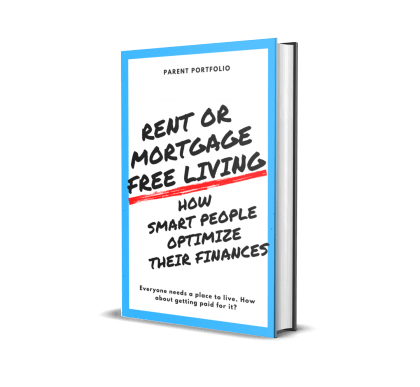Is Wholesaling Real Estate Legal in Florida | Top 8 Reason Explained

Is wholesaling real estate legal in Florida? This is a question that many Florida investors have. As a result, we’ve created this guide to assist you. Florida has always been a desirable area to reside in the United States. A dynamic mix of options for millions of people continues to be created by the right combination of a pleasant climate, economic opportunities, and a rising population.
In 2019, over $20 billion in non-residential development and $33 billion in residential construction will be completed. Florida is now ranked sixth in the United States. Building permits are likewise increasing at a double-digit rate.
The residential, travel, manufacturing, and other associated industries have benefited. The basic fact is that there is a steady and robust demand for real estate in Florida from top to bottom. New investors are available, seeking values at or below market value, and real estate investment remains an appealing and rewarding endeavour for many.
Many Floridians take advantage of this demand by pursuing conventional real estate careers as brokers or agents. On the other hand, many others seek a more flexible and successful real estate job via alternative ways, such as wholesaling investment agreements.
Is Wholesaling Real Estate Legal in Florida

Yes, to put it simply. Real estate wholesaling is permitted in Florida. However, as a wholesaler, you must educate yourself on the rules and restrictions that may apply to you. It is perfectly lawful to wholesale real estate in Florida without being a litigator, a professional realtor, or a registered broker.
However, investors might make severe blunders that jeopardize their whole company approach when it comes to wholesale. Investors should remember the following if they want to wholesale lawfully in Florida:
Conduct a title and physical search
Do a physical and title investigation on the property before entering into a wholesale arrangement. It’s critical to understand what you’re getting into, have a reliable figure of repair expenses, and be ready to account for and pay off any liens on the property. You also don’t want to risk signing a contract with someone who doesn’t have the legal authority to sell assets.
Have all of the necessary paperwork in order.
Do not get into a wholesale arrangement until you have all the necessary documents. You should be acquainted with and have on hand with sale/purchase contracts, modifications of contracts, declarations, contractual agreements, and third-party pacts. Wholesalers that hurry to create allocations or purchase contracts risk making expensive errors.
Real estate transactions must get documented; thus, each contract must contain a legal description of the asset and the names of the sellers and purchasers.
Both the sellers and the purchasers must sign and date the paperwork, which must provide a transparent and traceable closing date. The same information should get included in all assignments.
It should be apparent if the end customer takes on all of the wholesaler’s legal duties and relieves them from personal accountability. In Florida, wholesaling is a business, so you should approach it and have all of your paperwork in order.
Have a final buyer lined up.
Never engage in a wholesale transaction in Florida without first securing an end customer. Locating a seller and then a final buyer is a recipe for disaster.
These investing tactics are profitable because they close quickly for desperate sellers. When a successful wholesaler enters into a sales agreement, they already have an ultimate buyer in mind and will usually never force to acquire the property.
While it is not unlawful to enter into a contract to acquire property at a price you cannot afford in monetary terms, you may be subject to a lawsuit from the seller for misrepresentation or fraud.
This is a distinct possibility if you refuse to shut up due to a lack of finances and face a breach of contract lawsuit.
Make a nonrefundable earnest money deposit
All contracts must have an offer, acceptance, and consideration to be legal. The reference is the earnest money deposit. To clinch the agreement, earnest money deposits must be enough value. A significant earnest money deposit is often 1% of the purchase price but no less than $500.
A contract may get cancelled due to a lack of consideration. Deposits of $100 do not have the requisite worth to secure real estate agreements.
If you haven’t paid a deposit, you don’t have a legally binding contract to assign. You’ve exposed yourself to a lawsuit from the supplier and the eventual buyer for misrepresentation/fraud.
Don’t advertise a property you’re under contract for like it’s your own.
This is when wholesalers get into problems for breaking Florida Statutes Chapter 475. It would help if you were not putting up signs advertising the property for sale, promoting the property to others, etc., unless you are the seller or a lawfully contracted agent for the seller.
A buyer acquires equitable title to the property under contract. Fair rights offer access to the property and a financial stake (such as natural appreciation), but only legal ownership permits an investor to sell it.
The Florida Real Estate Commission may prosecute wholesalers who promote a property they do not have legal title or a valid representation agreement with the seller. Civil fines include $5,000 per infringement, injunctions barring the wholesaler from conducting business, and the loss of a realtor’s professional license for improperly promoting property.
A wholesaler who violates Chapter 475 of the Florida Statutes faces a third-degree guilty verdict.
Promote the Contract’s Rights
When wholesalers sign a sale/purchase agreement, they must realize that they are acquiring personal rights to the deal. Wholesalers should concentrate on the purchase price of their reassignment of contract or the flat margin in a double closure when speaking with end purchasers, not the acquisition price of the property.
Even certified realtors, brokers, and lawyers may break Florida Statutes Chapter 475. This happens if they advertise the property without first agreeing to serve as the seller’s agent in the transaction.
Entering into a contract to purchase an asset for $120,000 and then marketing it for $150,000 elsewhere violates Chapter 475 of the Florida Statutes.
This is valid if you do not possess legal title to the property first or bind by a separate contract with their lawyer or realtor to advertise the property at that price. If you wish to sell an assignment for $10,000, $20,000, or more, you must do so. Promote your contract rights and work out a fee. Legal wholesalers do not promote the property’s purchase price.
Do not form a daisy chain
You do not have the right to advertise the assignment or the property if you are not a party to the sale-purchase contract. If you are the contract’s assignee, you have the same rights as the transferor. This implies you won’t be able to sell the property.
Adhere to Florida’s Equity Investor Laws (Fla. Stats. 697.08 and 501.1377)
Wholesalers are in the business of locating sellers who want to sell their homes quickly. The vendors may have to leave the state as soon as possible.
Maybe the sellers don’t want to care for the house they just inherited. The sellers may wish to downsize and retire.
Desperate sellers frequently cannot afford to pay their mortgages and go overdue due to the COVID-19 recession. If your wholesaling company deals with distressed vendors behind their mortgage payments, you must declare how you plan to pay off the delinquent mortgage. This is in addition to the seller’s ability to buy back the property from you.
If you’re negotiating a settlement with the seller’s bank, you’ll need the following documents:
- A signed agreement for foreclosure-related services
- A statutory Right of Cancellation for Homeowners
- Cancellation Form in Writing
- A Notice to the Homeowner/Seller in Writing
Sellers of troubled properties have three days to cancel their contracts and contractual arrangements. And this privilege cannot get waived. Failure to follow these rules may give rise to fines of up to $15,000 per infraction.
Frequently Asked Questions
Is Wholesaling Real Estate Legal In Florida?
Yes, to put it simply. Real estate wholesaling is permitted in Florida. However, as a wholesaler, you must educate yourself on the rules and restrictions that may apply to you.
Is Wholesaling Real Estate worth it in Florida?
Yes. Wholesaling Real Estate in Florida comes with various merits.
Is real estate wholesaling possible for anyone?
Wholesaling real estate isn’t for everyone. It requires a significant amount of time, dedication, and patience. Furthermore, you must also possess excellent communication and marketing abilities. It also helps if you have a community of investors interested in purchasing the homes you wholesale.
Is it legal to double close in Florida?
In Florida, a double closure is permitted. On the other hand, investors may no longer use the end buyer’s purchase cash to pay for the subject property from the original seller. As a result, investors must put up their own money to close on the AB acquisition.
Conclusion
In conclusion, wholesaling real estate in Florida comes with diverse advantages. And if you need more help, the above highlight on “is wholesaling real estate legal in Florida” will aid you immensely.






